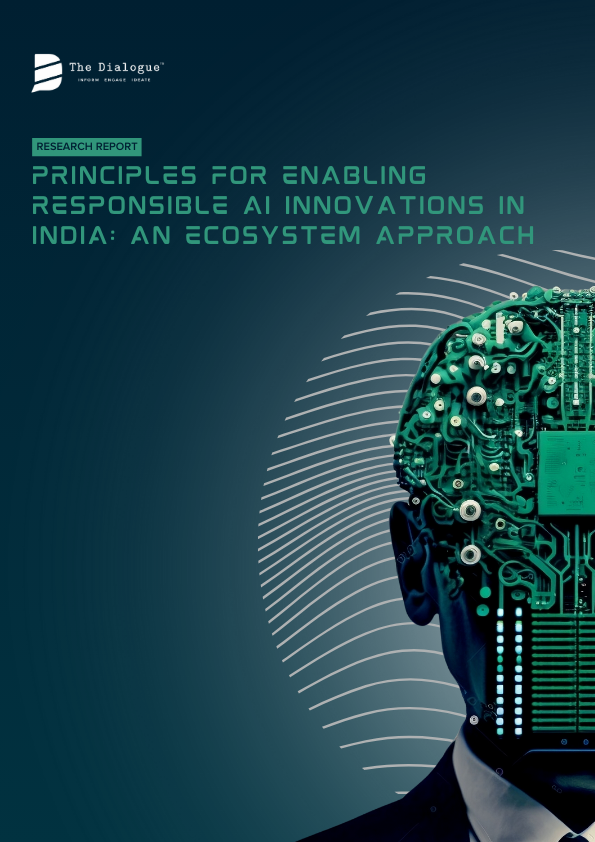The internet’s rapid evolution, from Web 2.0 to cutting-edge technologies like Artificial Intelligence (AI), has transformed our digital landscape in just a decade. AI, now almost on par with human-like responses, has expanded its reach from specialized B2B sectors to a wider B2C audience, particularly through the growing use of generative AI.
Since its November 2022 release, “ChatGPT” has gained significant Google search interest, highlighting its expanding influence.
AI’s rapid progress has delivered substantial social and economic benefits, revolutionizing education, agriculture, healthcare, and daily life. It fosters interactive learning, language translation, personalized education, precision farming, healthcare diagnostics, and menstrual cycle tracking, to name a few.
However, as AI’s impact widens, concerns about regulation, ethics, morality, and social implications mount. Worldwide, regulatory measures aim to manage responsible AI risks, address biases, inequality, and uphold fundamental rights. Yet, discussions largely focus on AI developers, neglecting the roles of other actors in the AI lifecycle.
All AI stakeholders—designers, implementers, deployers, and users—must collaborate responsibly. The AI lifecycle encompasses design, data, verification, validation, deployment, operation, and monitoring. Actors’ responsibilities vary by stage, necessitating diverse approaches. Developers must ensure unbiased AI predictions, while data scientists should strive for inclusive training data.
However, the literature predominantly concentrates on AI developers, overlooking the potential misuse by AI deployers and its unintended impacts on users. This raises accountability questions in managing AI consequences.
This paper proposes a Principle-based Multi-Stakeholder Approach to address these issues, aligning with global responsible AI values. It emphasizes responsible AI principles that prioritize impacts and harms across the lifecycle and seeks to integrate them into policy-making.
This paper underscores the importance of fostering responsible AI within India’s ecosystem, involving all stakeholders, including developers, deployers, and users. It contributes to shaping an effective governance structure for AI, focusing on multi-stakeholder engagement to imbibe responsible principles throughout the AI lifecycle.
Chapter 2 examines global AI regulations and principles, setting the context. Chapter 3 identifies five critical AI implications and maps stakeholders’ roles and principles. Operationalization strategies are proposed for developers, deployers, and users. Chapter 4 discusses the government’s role in implementing this multi-stakeholder approach.
Publication Date
September 11, 2023
Suggested Citation
Shekar, K., Sahiba, J., Saxena, G. and Birla, B. (2023, September). Principles for Enabling Responsible AI Innovations in India: An Ecosystem Approach. The Dialogue™
To read our Research Paper, click here
